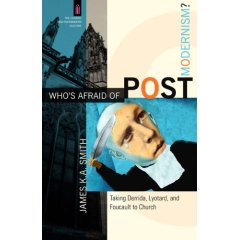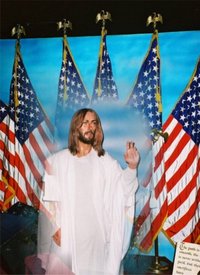The
Kalendar of the Episcopal Church asks us to remember the witness of four American pioneers of Black Rights and Women's Rights: Sojourner Truth, Harriet Tubman, Elizabeth Cady Stanton, Amelia Bloomer.
James Keifer provides these notes and reflections about these women:
- Sojourner Truth (26 November 1883)
Sojourner Truth, originally known as Isabella, was born a slave in New York in about 1798. In 1826 she escaped with the aid of Quaker Abolitionists, and became a street-corner evangelist and the founder of a shelter for homeless women. When she was travelling, and someone asked her name, she said "Sojourner," meaning that she was a citizen of heaven, and a wanderer on earth. She then gave her surname as "Truth," on the grounds that God was her Father, and His name was Truth. She spoke at numerous church gatherings, both black and white, quoting the Bible extensively from memory, and speaking against slavery and for an improved legal status for women. The speech for which she is best known is called, "Ain't I a Woman?" It was delivered in response to a male speaker who had been arguing that the refusal of votes for women was grounded in a wish to shelter women from the harsh realities of political life. She replied, with great effect, that she was a woman, and that society had not sheltered her. She became known as "the Miriam of the Latter Exodus."
- Harriet Ross Tubman (10 March 1913),
Harriet Ross was born in 1820 in Maryland. She was deeply impressed by the Bible narrative of God's deliverance of the Israelites out of slavery in Egypt, and it became the basis of her belief that it was God's will to deliver slaves in America out of their bondage, and that it was her duty to help accomplish this. In 1844, she escaped to Canada, but returned to help others escape. Working with other Abolitionists, chiefly white Quakers, she made at least nineteen excursions into Maryland in the 1850's, leading more than 300 slaves to freedom. During the War of 1861-5, she joined the Northern Army as a cook and a nurse and a spy, and on one occasion led a raid that freed over 750 slaves. After the war, she worked to shelter orphans and elderly poor persons, and to advance the status of women and blacks. She became known as "the Moses of her People."
- Elizabeth Cady Stanton (26 October 1902)
Harriet Ross was born in 1815 and reared in the Presbyterian Church. She found the Calvinist doctrine of predestination dismaying, and rebelled against it. She denounced the clergy of her day for not upholding women's rights, but as she travelled giving speeches on the subject, she found no lack of pulpits available to her. She undertook to write what she called a Women's Bible. It never got beyond a series of notes on selected Biblical passages. For example, she quotes the passage in Genesis where we are told that Noah's Ark had only one window, and remarks that if a woman had been consulted, the Ark would have been better designed.
Reading Mrs. Stanton's life and works, I have an uncomfortable feeling that she was interested in "religion" only as a potential ally or opponent in her campaign for women's political equality. I once spent some time in a congregation where the preacher never mentioned God or Christ except when they could be quoted in support of the preacher's political agenda. It was not a good experience. For me, reading about Mrs Stanton moves me, not to say, "Lord, give me the grace to follow you, as you did to Mrs. Stanton," but rather, "Lord do I do that? Do I think of you as there to carry out my agenda? If so, then help me to recognize it and to stop it." Meanwhile, if we think that the abolition of slavery and the recognition of women's right to own property are in accordance with justice, and are accordingly good things, then we can thank God for accomplishing good through Mrs Stanton and others. "It is enough to be sure of the deed. Our courteous Lord will deign to redeem the motive." (Julian of Norwich)
- Amelia Jenks Bloomer (30 December 1894)
Amelia Jenks was born in New York in 1818, reared as a Presbyterian, and as a young woman became an activist for the anti-slavery, anti-alcohol, and women's votes movements. One of her concerns has made her name a part of the language. In her day, women's fashions encouraged tightly laced waists, involving severe health problems. (The fashions were denounced in 1728 by William Law (9 April).) The fashion also called for skirts trailing the ground, an arrangement that made it difficult to keep the skirts reasonably clean, especially since the streets were full of horses. Mrs. Bloomer designed a women's costume featuring what are known as Turkish pants, or harem pants (remember the television show I Dream of Jeannie), loose baggy trousers gathered into tight bands at the ankles and waist. Over these she wore a mid-calf-length skirt. It seems a thoroughly modest garb, but it excited indignation and ridicule. (At least well into the 1940's, women's underpants, and women's baggy outer pants worn for athletics, were known as "bloomers.")
Mrs. Bloomer and her husband eventually settled in Council Bluffs, Iowa, where she worked to promote churches, schools, libraries, and progressive and reform movements. On one occasion she said:
"The same Power that brought the slave out of bondage will, in His own good time and way, bring about the emancipation of women, and make her the equal in power and dominion that she was in the beginning."
You may wish to use this prayer to God as part of your remembrance for these women:
O God, whose Spirit guides us into all truth and makes us free: Strengthen and sustain us as you did your servants Elizabeth, Amelia, Sojourner, and Harriet. Give us vision and courage to stand against oppression and injustice and all that works against the glorious liberty to which you call all your children; through Jesus Christ our Savior, who lives and reigns with you and the Holy Spirit, one God, for ever and ever. Amen.






